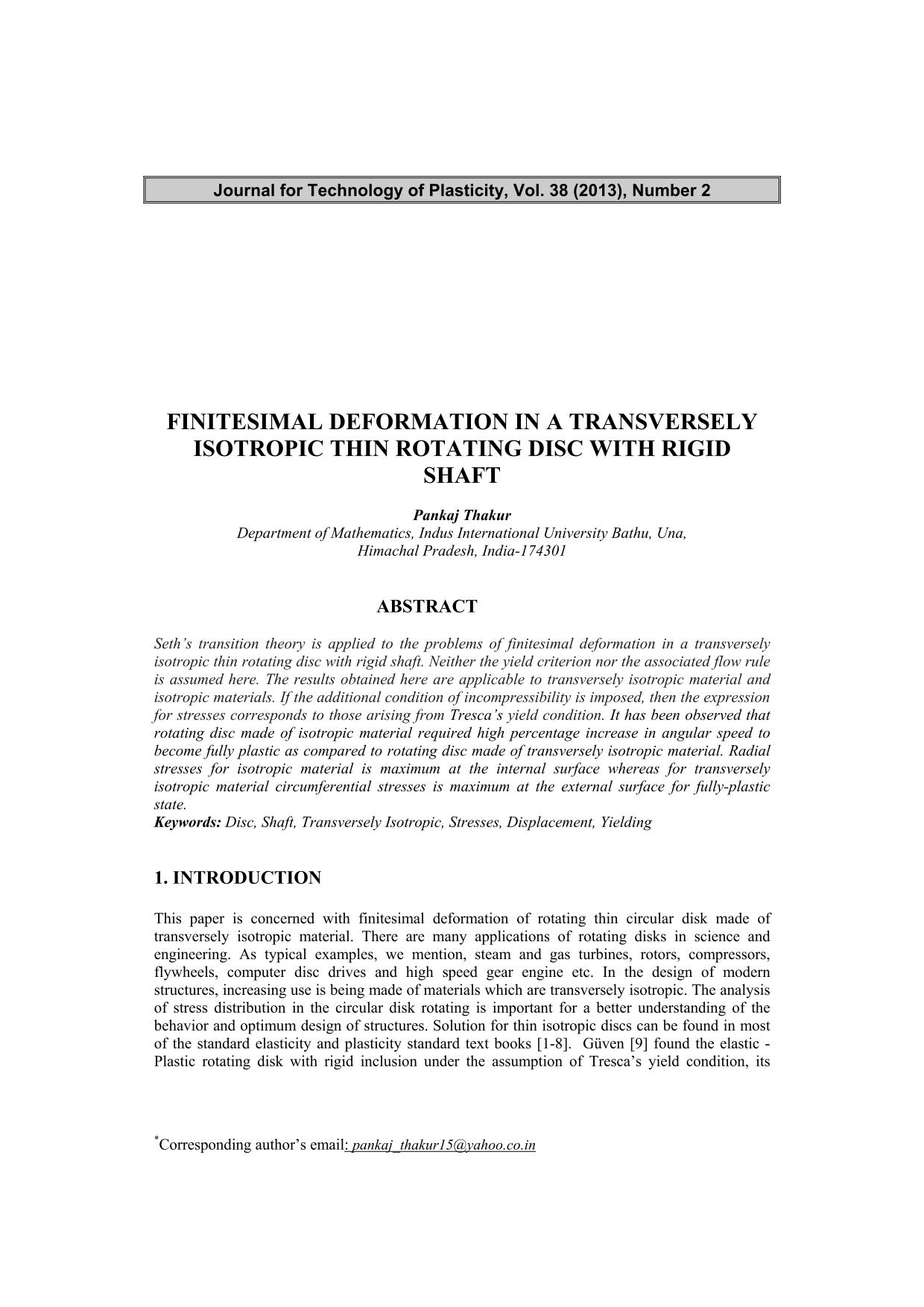Finitesimal deformation in a transversely isotropic thin rotating disc with rigid shaft

Published 2013-12-30
abstract views: 150 // Full text article (PDF): 126
Keywords
- Disc,
- Shaft,
- Transversely Isotropic,
- Stresses,
- Displacement
- Yielding ...More
How to Cite

This work is licensed under a Creative Commons Attribution 4.0 International License.
Abstract
Seth’s transition theory is applied to the problems of finitesimal deformation in a transversely isotropic thin rotating disc with rigid shaft. Neither the yield criterion nor the associated flow rule is assumed here. The results obtained here are applicable to transversely isotropic material and isotropic materials. If the additional condition of incompressibility is imposed, then the expression for stresses corresponds to those arising from Tresca’s yield condition. It has been observed that rotating disc made of isotropic material required high percentage increase in angular speed to become fully plastic as compared to rotating disc made of transversely isotropic material. Radial stresses for isotropic material is maximum at the internal surface whereas for transversely isotropic material circumferential stresses is maximum at the external surface for fully-plastic state.

